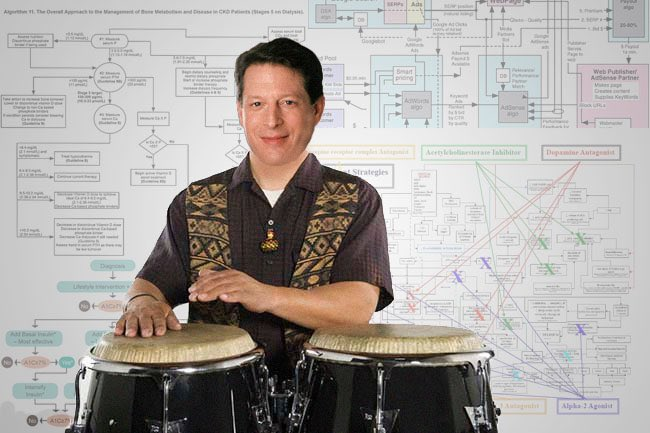People talk about social media algorithms as if they’re something disconnected from the decisions of the companies that make and control them. “The Algorithm” is not making YT push shitty content on your home page, YouTube is making that happen. It’s a combination of ignoring certain trends and actively promoting others.
For starters, these companies made the algorithms, they tweak them constantly. When Elsagate happened, YT made changes the reduced the amount of that very specific type of garbage that was shown. When advertisers stop advertising, they suddenly have great influence over the recommendations. That to me proves they have to ability to control with pretty fine detail what is recommended by their sites.
It’s been revealed that TikTok has a manual “heater” function that allows them to force certain videos to appear in recommendations. They use this to set the tone of the site, lure influencers, and make brand deals. That exposure causes heated channels to gain subscribers, further amplifying the effects.
YT trending is manually chosen as well, 10 main videos, 10 gaming videos and 10 shorts, updated every 15 minutes. When videos end up on the trending page, they get more views, which makes them get recommended even more. This gives them a constant source of influence over the recommendations.
One mistake I see people make is to assume that recommendation algorithms are simply a reflection of the audience; “The algorithm is bad because we are bad”. My counterpoint to that is that when the recommendations hurt the bottom line of the business, these companies change them. At the very least it’s social media companies choosing not to fix bad recommendations and at worst intentional manipulation. Sure, people choose to watch a lot of gross stuff, but let’s not act like YouTube couldn’t get rid of, for example, misogyny for children content(Andrew Tate etc) quickly if they wanted to.
The other is to treat it as a sentient creation that nobody has control over, “We’re just chasing what the algorithm wants”. It’s one of the things tech bros dream of with regard to AI. They want to be able to put an algorithm in charge of the orphan crushing machine and say, “Sorry, I don’t know why the algorithm keeps choosing to crush the orphans”.
Tldr: The purpose of a system is what it does.
Titling it like that makes it seem like a YA dystopian fiction novel. The Algorithm, run by The Company, sorts teenagers into viewing demographics. Each is given a colour code and must play in The Games to secure their future careers. Many die.
deleted by creator
Me and my fortnite cash cup losses
YouTube: “It’s just a black box, we have no idea why it’s feeding children pragerU videos and we powerless to change it.”

Guys, why is the algorithm giving me meta posts like this?
It’s because the Hexbear admins are manually pushing this sort of content to serve their communist agenda
The algorithm is just opinion expressed in code.
“The Algorithm” is why they want to ban TikTok so much. State backed corporations like Google and Meta give groups like the CIA access and control over these algorithms. But since TikTok is Chinese owned, they don’t have that access.
It’s why YouTube has been forcing far right propaganda onto children for years now
Hate to break it to you, but China appointed NATO and CIA psyop officers to America TikTok’s top leadership. China doesn’t really care about what the US do or demand from it unless it’s demanding that the source code be handed over. The feds get access to the biggest social network in the world and can tailor it to US propaganda if necessary, and in turn they give China billions of dollars. The US won’t ban it because other countries will follow, and the US intelligence losing access to the main cultural sphere (and in some instances, the main news source) of many countries, ally and foe, would be disastrous.
China appointed NATO and CIA psyop officers to America TikTok’s top leadership
God fucking damn it, of course.
This makes a lot of sense now. So the push to ban TikTok was probably just Google and Facebook trying to shut out a competitor.
I also didn’t think of the US banning it, all the lapdogs would follow suit. Much better to have it still active while you can control it than to ban it.
What I don’t get is why the CIA, or anyone for that matter, would want to push far right content? I assume a government would rather have moderate, safe, neoliberal videos get the most attention.
Far right content radicalizes people to become Fascists, and if you get enough fascists in one place they tend to form paramilitaries and start trying to coup the government.
There needs to be a scary right wing movement for the centrists to placate and compromise with to keep the rightward slide moving. Radicalized right wingers also justify the police state to comfortable squishy libs.
Fascist governments don’t really need to worry about fascist coups - Jan 6th was completely managed and controlled by the FBI/CIA.
Domestic fascism can be iffy for the CIA, but historically it’s not something they actively aim for. You don’t really see a pattern of them trying to get Juan Hitler Delgado into POTUS like you see elsewhere. They don’t care if foreign countries are far right as long as they are loyal to the US and kill communists and protect American profits.
The FBI, however, has a more colorful history with killing communists and progressives and manipulating politics at home. Obviously the CIA does operate on US soil, but their stated roles often times mean that resources are allocated for their stated roles and it’s more efficient for the agencies to focus on different agendas.
Because far right politics are better for business. And by business, I mean violently overthrowing socialist governments, assassinations, all the good stuff those ghouls love.
in general i think the function of computers has been to beat the average person into cowed submission to their intellectual and class “superiors,” present a series of systems that are so complex, alien, and totalizing that the only possible response is a retreat to a medieval mindset. the liberatory potential of the internet that its early adopters believed in turned out to be a dud. either that potential was never there, or it requires certain conditions external to it to be realized. Honestly I think we either need to teach everyone to learn to code (whether it will get them a job or not) or blow up all the server farms, anything in between is untenable.
I feel like Algorithms are still in themselves bad, at least for the vast majority of use cases. The Spotify algorithm for example isn’t bad at recommending music (at least in my experience my weekly discover is full of obscure music from all over the world that I’d have very little chance at finding on my own), but it just can’t help devaluing the music at the same time. It’s endless, without a human touch, without context. It will never challenge your taste and makes the listener lazy. And it makes the music itself worse too, since suddenly all music needs to compete against all other music ever made, since the algorithm sees it all as worth the same amount of space and care.
Oh, you don’t think algorithms are bad? Traffic laws are an algorithm. An algorithm for CARS! Instead of trains!!
Sorting by new is itself an algorithm. Algorithms aren’t inherently bad. It’s just a question of how democratic they are

The most common version of “the Algorithm” I heard invoked back in CA was “my favorite particular tech treat corporation isn’t being bigoted, it’s just the algorithm!”

Yes! I agree, and it drives me nuts. I have more to say, I’ll edit later.
I have no idea what this is referencing but every time I hear ppl talk about the algo it’s just tongue in cheek discussion about why their tiktok fyp is filled with goth girls or smth. it’s rarely with any assumption that it’s a fair “content free market” so to speak
what discussions have you heard?
especially when people think back to an old viral video that becomes interesting to others again
DAE le YouTube algorithm knows? 🤓
Also, Lanяд Skynяд
Also the algorithm does not work as intended even outside of this. The algorithms are designed to promote the content that the social media site wants. However, people with knowledge of how algorithms work can manipulate the way their account on the website is set up and the way their content is made, so that their videos are pushed by the algorithm. Thus the content that gets promoted by the algorithm is not promoted on the merits of the content itself, but on how much knowledge the content creators have about the algorithm. This leads to well made content getting low amounts of views if it’s made by someone who doesn’t manipulate the algorithm and their content, and mediocre content getting lots of views if the creator knows how the algorithm works.
I agree with your larger point, but I disagree in that I think “The Algorithm” does exist and has a mind of its own in the same sense of capital as a real god that occasionally gets floated around in spaces like this. In a sense you’re right in that these sites are created by humans, but there are so many weird quirks that make the idea of it being ideologically driven kinda fall apart.
The most obvious example is the classic ‘youtuber face’. There is no ideological reason for this to exist, but at one point someone found out you could get 16% more views if you had that face in the thumbnail and it has completely reshaped the landscape of youtube. In the same way that capital, to quote Marx, “becomes the operation of an entity outside man and above man,” the “Algorithm” subsumes both those who use it and those who created it until they essentially become unthinking thralls of it (see Mr. Beast).
Idk there’s probably a lot more that someone who’s more well read on this topic than me could say, and maybe one day when I’m not just killing time at work I’ll actually sit down and write a whole thing about it since I think a lot about this topic. There are definitely controls and levers that are pulled by both private and government interests, but I think outright dismissal of “The Algorithm” as its own “being” (for lack of a better term) is missing out on potentially insightful marxist analysis of the digital economy and how it relates to actual, tangible capital.














